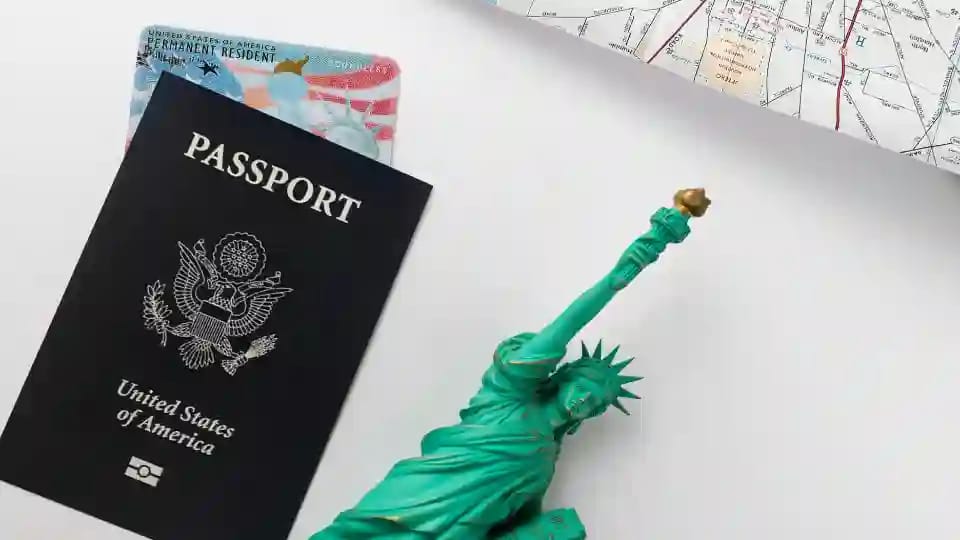H-1B visa demand remains strong in FY2026 despite tighter US scrutiny
USCIS reveals that 343,981 eligible registrations were received for the financial year 2026, far exceeding the annual cap of 85,000 visas
H-1B visa demand remains strong in FY2026 despite tighter US scrutiny
USCIS reveals that 343,981 eligible registrations were received for the financial year 2026, far exceeding the annual cap of 85,000 visas
Is there a lack of appetite for US jobs? The data suggests otherwise. The latest figures from the US Citizenship and Immigration Services (USCIS) reveal that 343,981 eligible registrations were received for the financial year 2026, far exceeding the annual cap of 85,000 visas, which includes a separate quota of 20,000 for those with a US master’s degree.
Only 7,828 of these were for individuals with multiple registrations, a sharp drop from the previous year.
Fewer duplicate entries, stronger checks
The dip in overall registrations doesn’t mean a dip in demand.
“The decline in H-1B visa registrations this year doesn’t necessarily reflect a lack of appetite — it’s more about a correction in the system,” Varun Singh, managing director of XIPHIAS Immigration told Business Standard.
Also Read
Indian American
NRIs in US may soon have to pay ₹5,000 tax on every ₹1 lakh sent to India
Donald Trump, Trump
US Bill proposes 5% tax on foreign money transfers: Why NRIs are worried
Badar Khan Suri
Indian student on J-1 visa released from US detention: What lies ahead
green card, h1b visa
H-1B visa 2026 registrations fall 27% as US tightens rules for immigrants
US green card, US Passport, US immigration
US Visa Bulletin June 2025: Delays persist for Indian green card seekers
“Last year, the unusually high number of registrations raised concerns about misuse — with multiple applications being filed for the same candidate to game the lottery. USCIS’s new, stricter rules around beneficiary-centric registration have effectively curbed that loophole. What we’re seeing now is a more accurate picture of genuine demand.”
He added that demand for global tech talent in the US remains strong, particularly in areas such as artificial intelligence, cybersecurity, and cloud engineering.
“The US is still a top destination for Indian talent. What’s changing is the intent to bring more transparency and fairness into the H-1B process — which in the long term, actually helps both employers and employees.”
Key numbers from fiscal 2026
- 343,981 eligible registrations received
- 7,828 for individuals with multiple registrations
- 85,000 H-1B visas available (including 20,000 for US master’s holders)
- 120,141 registrations selected to meet the cap
- Registration period: March 7 to March 24, 2025
The USCIS said the updated selection system is part of efforts to prevent misuse. “We implemented the beneficiary-centric selection process under the final rule ‘Improving the H-1B Registration Selection Process and Program Integrity’,” the agency said in a statement.
Historical H-1B registration volumes
FY2021: 274,237
FY2022: 308,613
FY2023: 483,927
FY2024: 780,884
FY2025: 479,953
FY2026: 358,737
The average number of registrations per beneficiary in FY2026 was just 1.01, compared to 1.06 last year — indicating fewer attempts at duplicate filings.
Reining in abuse of the system
Registrations found to include false details, incorrect travel document data, or filed through collusion can be invalidated. The agency said it may deny or revoke such petitions and refer cases to law enforcement.
“Based on evidence from the FY2023 and FY2024 H-1B cap seasons, we have undertaken extensive fraud investigations, denied and revoked petitions accordingly, and continue to make law enforcement referrals,” USCIS said.
It added that it will examine FY2025 and FY2026 data to detect any further misuse.
Indian applicants continue to dominate
Indian nationals continue to account for the largest share of H-1B recipients. In FY2023, they received 68,825 initial H-1B visas — around 58 per cent of the total — and over 2.1 lakh visa extensions. Applicants from China were the next largest group, receiving 16,094 initial visas and 29,250 extensions.
Country-wise data for FY2024 and FY2025 is yet to be released. However, Indian nationals typically make up around 60 per cent of new H-1B visa registrations.



